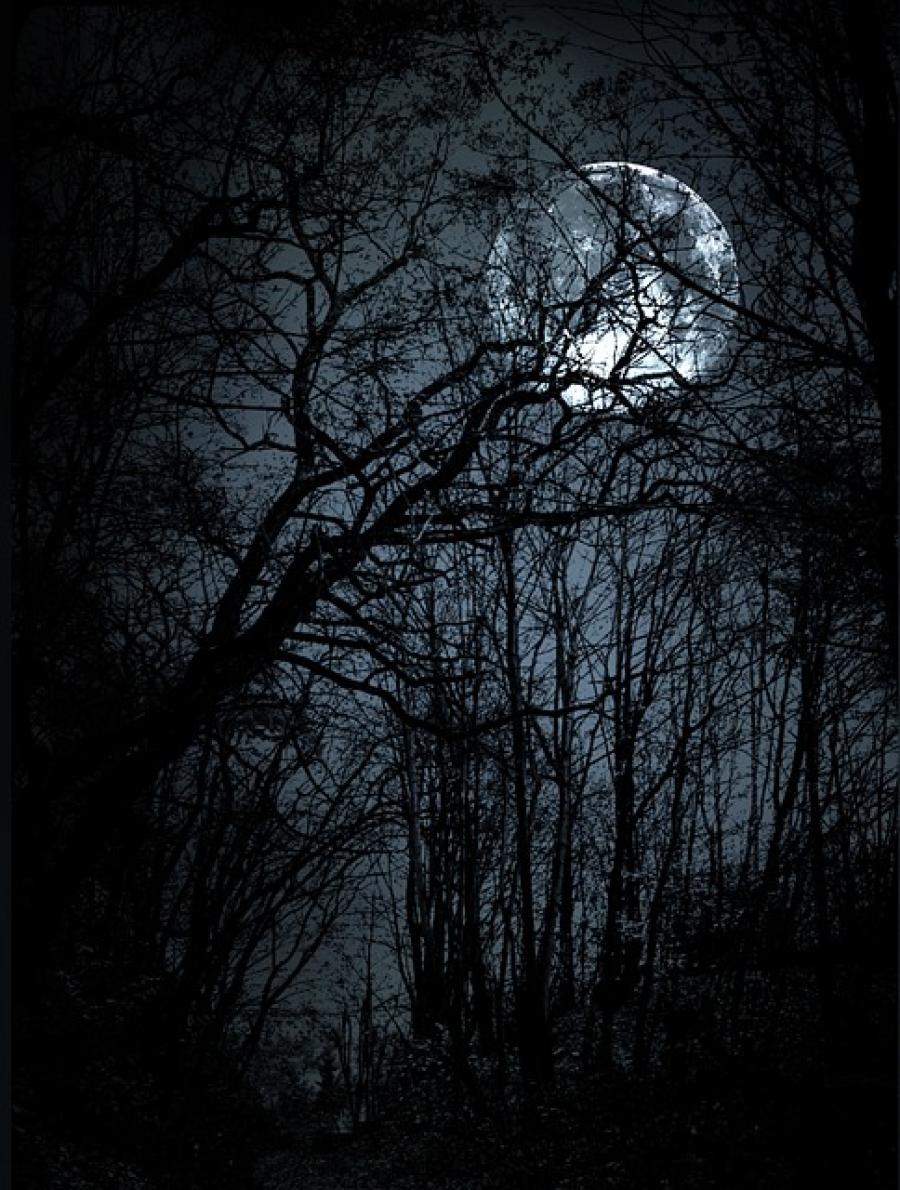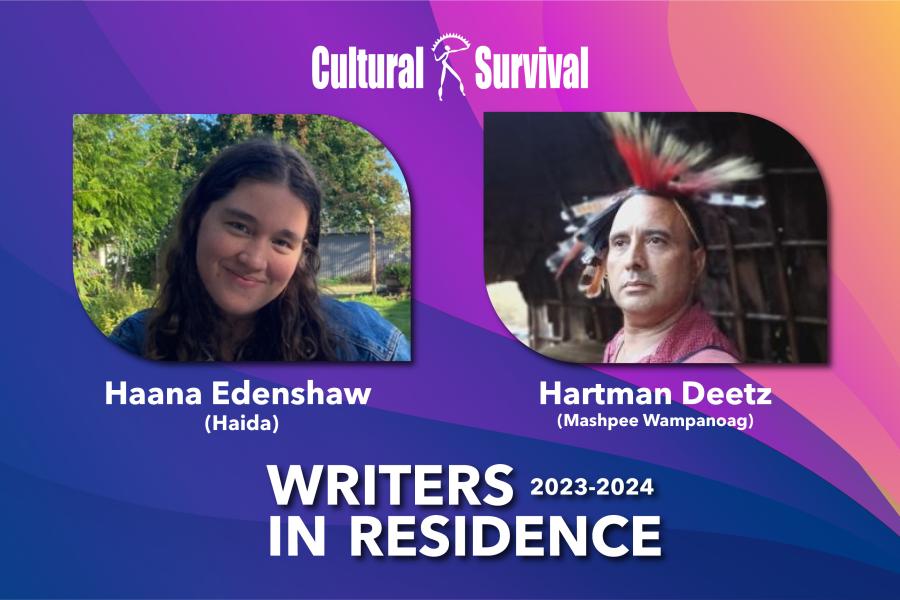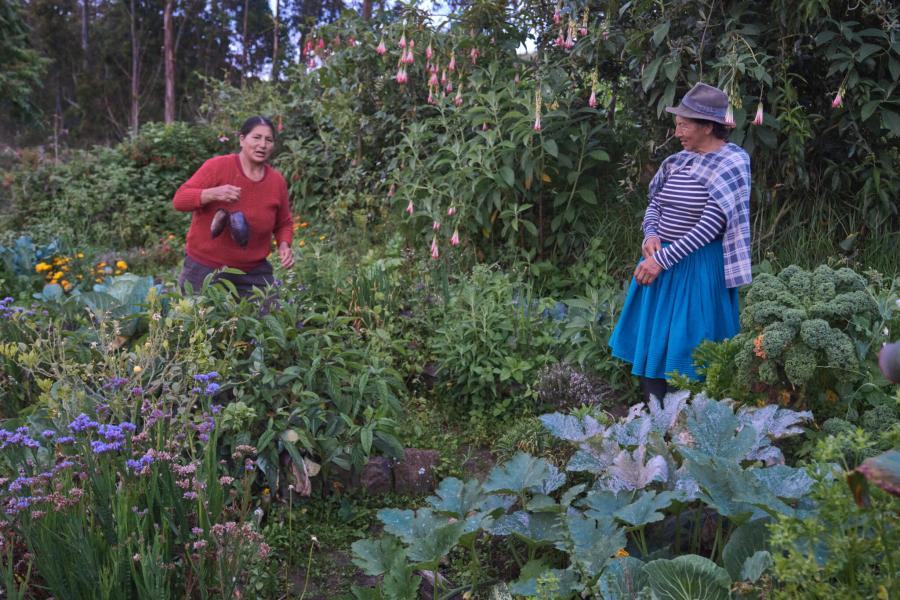Chief Wil Seeks is one of the hereditary chiefs of the Gitksan, a nation of about 6,000 Indians in British Columbia, Canada. Elizabeth May, executive director of Cultural Survival Canada, interviewed Seeks.
I'll tell you how it happened that we got involved with protesting Spain's 500 years celebration and how we boarded the Columbus expedition to demand an apology.
One of my best friends in British Columbia, Terry Glavin, is a trusted journalist, like he is my own brother. Paul Watson of the Sea Shepherd Conservation Society had read Terry's book about the Gitksan Wet'suwt'en, The Death Feast of Demlahamid. Paul's group wanted to protest the Columbus celebration themselves, but they knew it wouldn't have the same impact as if it was done by native people. Terry got Paul and myself together, and Paul offered us the use of his ship. For political reasons, we established a client/charterer relationship, although no funds exchanged hands.
My responsibility was to get in touch with different leaders to come on the voyage with us. In the end, most of us on the trip were Gitskan Wet'suwet'en. The village of Hagwilget paid for all the expenses of eight of their people. They did this by local fundraising, bingos, and events. They saw the value in exposing their members to travel experience and to politics. Part of my own fare was paid for by the Gitksan Wet'suwet'en Government Commission and part was paid by the village of Hagwilget. No public money was used on the trip.
The first time we all got together was when we landed in Nassau in the Bahamas. The Sea Shepherd was waiting in port for us there, at Prince George Harbor, I think. That's the first time we knew who was coming. And we didn't catch up with the Spanish ships until Port de Rey, Puerto Rico. I was out of the country a total of 21 days, and I can't tell you how long we were on the high seas looking for them. We must have spent half our time on land, thank goodness! We're freshwater Indians, not accustomed to bobbing around on the ocean.
The morning we boarded the Santa Maria, I was having breakfast and didn't even know about it until someone came to tell me. Three of our people from Hagwilget and one of the Sea Shepherd crew, one of our newfound friends, had boarded the Santa Maria very early in the morning. Then three of us took off to the dock, but when we got there we weren't allowed on the docks. We saw our three members and our friend sitting there on the dock.
The authorities said that we had to wait for the Spanish consul to Puerto Rico. He showed up later, and we met with the captain of the Spanish flotilla. At that time, we signed a document together requesting that the government of Spain apologize for what they did in 1492 and for celebrating mass cultural genocide and ecocide. We also recommended that they apologize to us and fly our flag at every port that they enter. And they agreed.
COLUMBUS IS DEAD
Our protest was not intended to stop the celebration but to change the spirit of it so that the indigenous peoples of the Americas could celebrate the beginning of change and mutual understanding. That's what we want we want to celebrate. And we wanted Spain to be instrumental in getting Canada to apologize, and for the American government to apologize, to the First Nation communities. We're not upset with Columbus. He's dead. What we're really upset with is Canada and the United States for perpetuating the colonial policies started by Columbus in 1492.
Today, Canada continues its colonialistic policies. Canada protests apartheid in South africa but cultivates apartheid right here against us and our people. Our people are still going to court for defending our rights. The Mohawks are going to court for defending their rights. The Lubicons are pushed off their own territories. The Gitksan We'suwet'en are in the courts over the issue of ownership and jurisdiction. and while we are in the courts, our rights are still under attack, while Canada attacks apartheid in South Africa.
We'd like Canada to treat First Nations in the spirit of fairness and redress injustices. Our message is that we still aren't satisfied that anything substantive is going to happen. It's unfortunate, but I don't see any peaceful resolution to our outstanding problems. The canadian public will have to force their governments to do what's right for their own benefit as well as ours.
What we're suggesting now is a regionalization of Canada, decentralizing our area of northwest British Columbia. Our territories would be recognized as the regional government of Gitksan Wet'suwet'en. We would make local decisions. That opportunity is not available to us today. Shareholders Montreal, Toronto, and New York are deciding what is to be done to our resources - in British Columbia and right across Canada. Distant communities are making decisions about our resources. They aren't making responsible decisions. They don't have to live with their decisions.
We're presenting an answer to global problems - to the environmental issues and to the economic issues. Local decision-making powers would be more responsible, and we would save the environment and the economy. Right now, the decision makers are everywhere else except at the local level. Until decisions are at the local level, they'll always be irresponsible. They won't be concerned with the welfare of the people or their territories, and that's what we've got to change.
LEARNING FROM THE PAST
What we're working on now is a major project. We're trying to go back to what our ancestors did. Back in February 1990, we started a fishery commission. We signed a Memorandum of Understanding among the Carrier-Sekani, the Gitksan Wet'suwet'en, and the Tsimshian Nations to form the Skeena Fishery Commission. Our main objectives are: one, to conserve this resource according to our own traditions; two, to harvest the resource according to our own tradition; and, three, to enhance the resource.
Now, in 1992, we have finally managed to negotiate with the Canadian government so that we can harvest salmon for commercial use. We have negotiated the right to harvest 150,000 sockeye and 100,000 pinks. The Carrier Sekani would harvest 50,000 sockeye, the Gitksan would harvest 50,000, and the Tsimshian would harvest 50,000. The Wet'suwet'en would harvest 100,000 pinks.
This is the first time in over 100 years that we've had the right to harvest the salmon - not since the late 1800s. Traditionally our people harvested the resource and traded it with companies like the Hudson Bay Company and the railway crews. Sometime in the late 1800s, non-native fish processors at the mouth of the Skeena lobbied the Canadian government, and it passed laws against our commercializing our resource. They said we were endangering the resource, but salmon we caught. A native would get five cents and a non-native would get ten cents for the same fish.
Our people have always experienced disparities in all these different economic sectors, so now we have to go ahead and harvest the resource and put it on sale.
We're going to use passive fishing equipment. We're launching a fish trap that is going to enable us to harvest fish selectively. We can take what we want and release the rest of the fish to go and spawn and reproduce. We're not going to affect the commercial fishery, nor are we going to affect the fish that our own people have been catching by other means.
We're also going to experiment with the use of traditional weirs. They're not new to the Gitksan, but they're new to me and my contemporaries. The use of weirs was outlawed long ago, but now we're returning to it. Since it allows us to harvest selectively, it's a more sensible means of harvesting the resource.
We're simply allowing the salmon to come to us. By contrast, the mixed-stock catch in commercial fishing has a lot to do with depleting the resource. For example, drift-net fishing, with a fixed net going on for miles, indiscriminately kills mammals, marine life, and huge numbers of the salmon. And the overhead for anybody involved in the commercial fishery is prohibitive. They're chasing salmon all around the ocean, burning up fuel.
We have set up the Gitksan Wet'suwet'en Corporation. We will only buy salmon caught with passive gear, and the corporation will market the resource to Vancouver. This year we will be selling fresh salmon. Sometime, maybe this year, maybe next year, we'll start a smokehouse and prepare specialty salmon products to be marketed in Europe. Then only rich people will be able to buy our products. Only rich people and our friends.
Country: Canada
Organization: Dene Traditional Environmental Knowledge Pilot Project
Despite linguistic differences and adaptation to different environments, the people who comprise the Dene Nation - Chipewyan, Dogrib, Slavey, Hareskin, and Gwich inshare a common spiritually, mythology, family traditions, economics, and forms of government. Central to this common ground is the relationship of people with the land.
The Dene are documenting the environmental knowledge of their ancestors to: * ensure that it is preserved and used; * gain recognition among scientists of the value of this knowledge, with the goal of creating a resource-management system combining Western and traditional science; * develop a methodology for regionalscale, community-based research; * train local researchers to carry out all phrases of a project; * enhance the appreciation of Dene culture among Dene and non-Dene through curricula that incorporate traditional environmental knowledge and by disseminating the results of research to Dene communities, professional and scholarly groups, and the public.
This effort began with a pilot project in Fort Good Hope. The pilot project, which is complete, aimed to determine ways to involve elders and other community members in research, collect data via methods appropriate to the ways that traditional knowledge is expressed and applied, and equip local researchers with skills in social science and ecology.
Address: Martha Johnson, Research Director, Dene Cultural Institute, 35 Morrison Dr., YK, NWT, X1A IZ3
Article copyright Cultural Survival, Inc.



